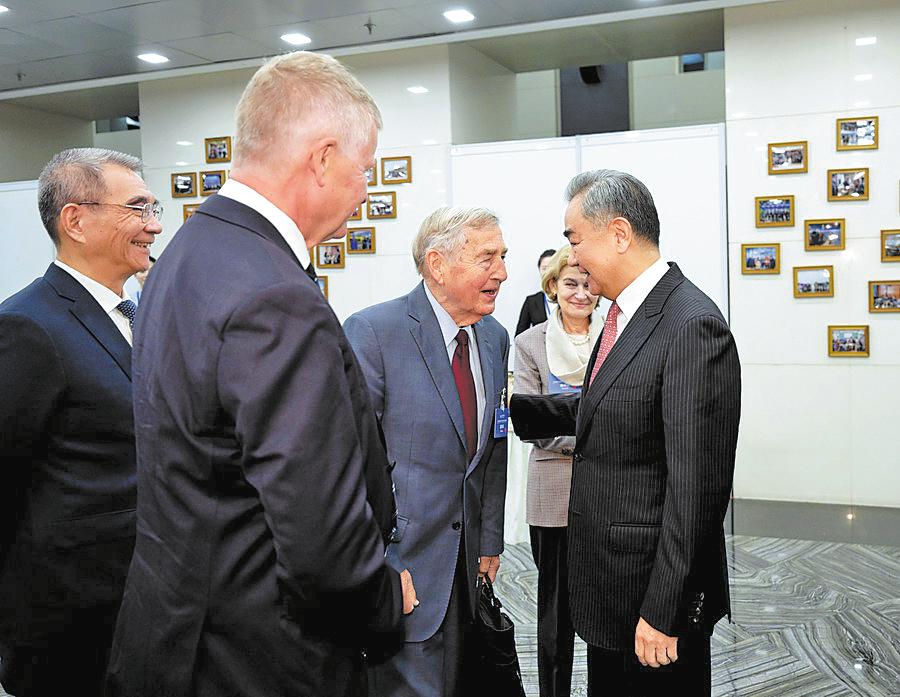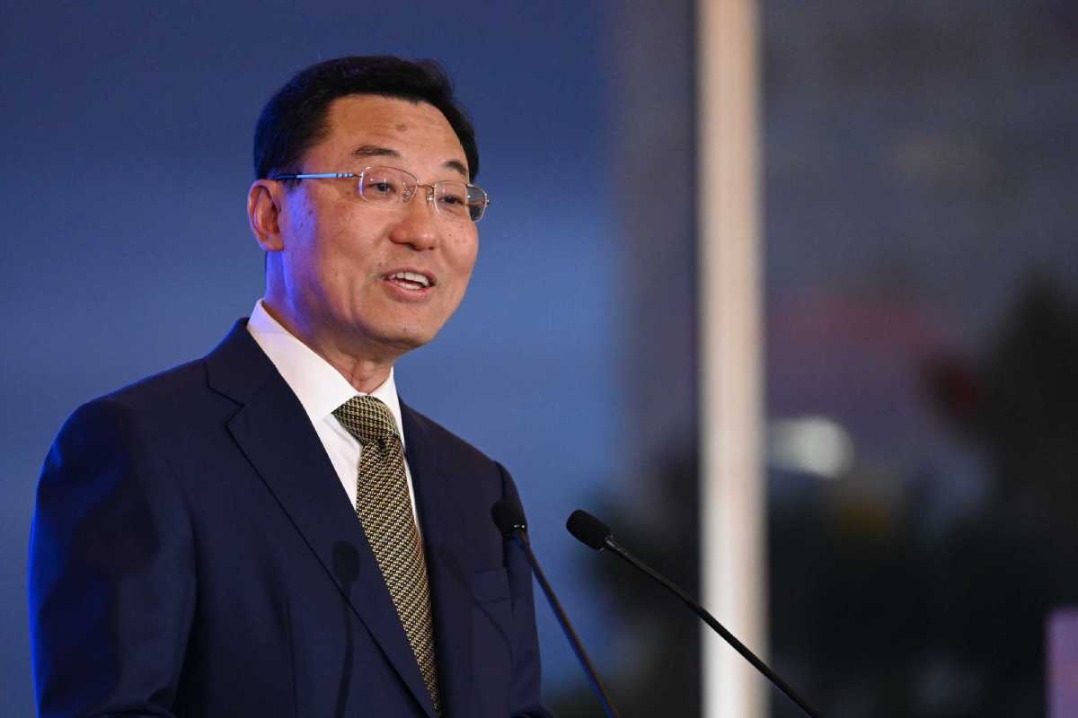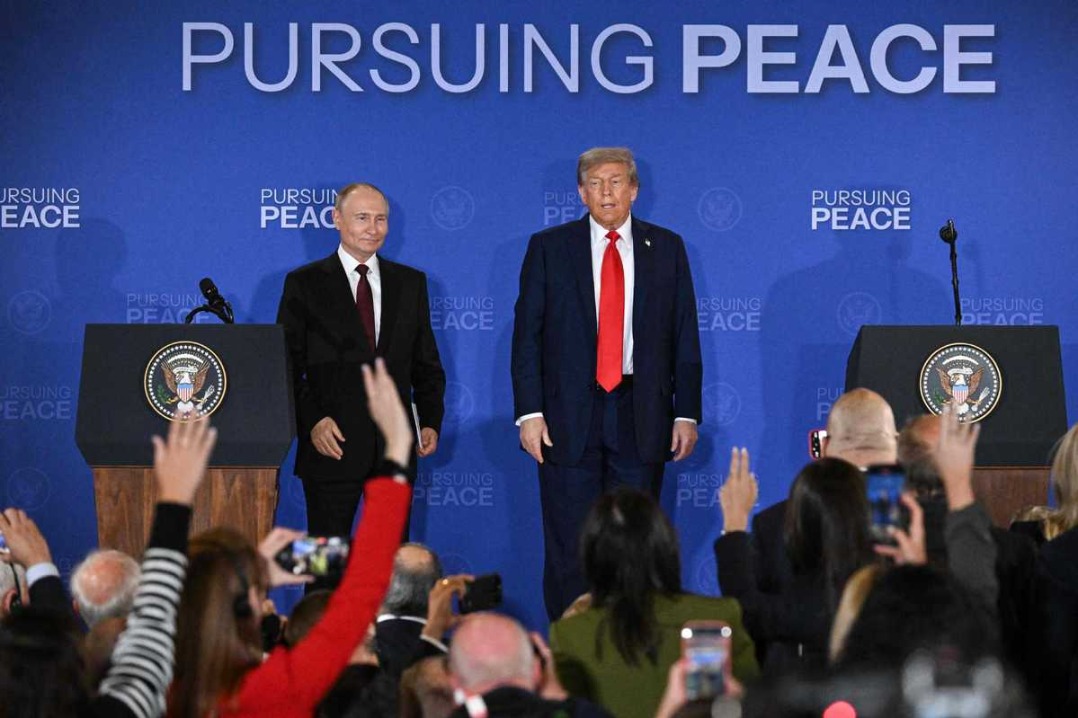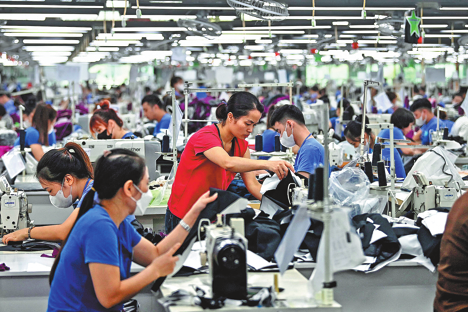FM elaborates on Beijing's plans for global governance


Improving global governance, increasing result-oriented efforts, amplifying the voice of the Global South and strengthening the role of the United Nations were among the key phrases mentioned at the Lanting Forum, a high-end symposium attended by prominent figures, including Foreign Minister Wang Yi on Monday in Beijing.
Last month, President Xi Jinping put forward the Global Governance Initiative for the first time.
Wang said in his speech that it is "another major global public good China has contributed to the world", and it has received support from more than 140 countries and international organizations in a short period of time.
"Today, the world is plagued by more than 50 conflicts of different kinds simultaneously, and over 100 million people have been displaced. A world of interwoven changes and turmoil needs better global governance more than ever before," Wang said.
He made a five-point proposal in his speech: jointly defend the UN's authority and status; advance the process of common development; unite in addressing pressing and prominent challenges; respond to the demands of the Global South; and give full play to the role of different parties.
This year marks the 80th anniversary of the UN's founding, and Wang said that China is ready to work with countries to strengthen support for the UN system.
On Beijing's support for the multilateral trade system, Wang urged countries to "stop politicizing economic and trade issues, stop fragmenting the global market and stop willfully waging trade wars and tariff wars".
China is poised to assume its presidency of the Asia-Pacific Economic Cooperation in 2026, according to Wang.
Beijing "looks forward to working with various parties to advance the building of an Asia-Pacific community and the Free Trade Area of the Asia-Pacific," he said.
Commenting on Wang's speech at the forum, Irina Bokova, former director-general of UNESCO, said she is pleased "not only that we have a better understanding of the Global Governance Initiative, but also we listened to very concrete proposals (on) how further to develop it.
"I hope that with the positive reaction of the international community, there will be really some very concrete steps forward in order to strengthen and to make global governance relevant to what is needed nowadays," she added.
Speaking on the Palestine-Israel conflict, Wang said China calls for a genuine, comprehensive and lasting ceasefire.
Regarding the Ukraine crisis, he said that China maintains an objective and impartial position and is "ready to work with the international community to continue efforts for peace".
Omar Razzaz, former Jordanian prime minister and a senior fellow at the Harvard Kennedy School, endorsed China's role in rallying support for global governance and supporting peace in the Gaza region.
He also noted that the world needs to find solutions about how to deal with climate challenges, the risk of war and AI regulations, and "without proper global governance, this will not happen."
"The idea of the law of the jungle — every country does what it wants, when it wants and does not have to abide by any rule — is the fastest way to global disaster," he said.
Chen Bo, president of the China Institute of International Studies, noted that a significant factor undermining the effectiveness of global governance is unilateralism and hegemonism.
"Unilateralism and hegemonism have created a series of artificial obstacles and difficulties for the normal functioning of the United Nations and other global governance institutions, as well as for their necessary reform processes," she said.
She said the Global South has made tremendous contributions to maintaining world peace and promoting global economic growth, and these contributions are set to increase in the future.
However, there is a "severe mismatch" between such contributions and the voice, rights and interests of the Global South within the global governance system, and such an imbalance affects the fairness of the current global governance architecture, she added.
zhangyunbi@chinadaily.com.cn






























